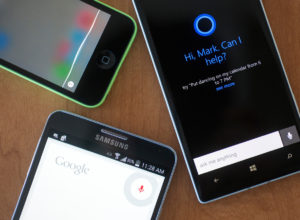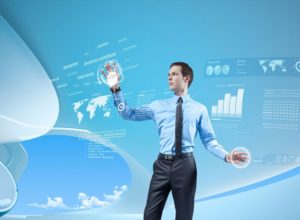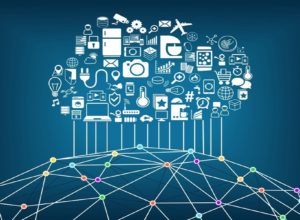Tag: Enterprise
Is automation the developer’s nightmare or a much needed help
The fourth industrial revolution has already led to transformations that alter our way of life fundamentally. But perhaps the most important of them all is the change in the labour market, which affects hundreds of jobs and can become a challenge even for the most sought ones - the developers.
Recent study, conducted by the Oxford University, showed that 47% of jobs in the United States are at risk of being automated in the next two decades. But according to McKinsey Global Institute, only 5% of all occupations are at risk of being entirely automated.
Rather than disappearing, the report’s authors say, jobs will change dramatically, forcing workers to adapt. McKinsey’s analysis of 800 occupations and 2,000 job tasks predicts that half of workers’ current tasks could be automated by the year 2055 using technology that currently exists.
The experts think that those changes will not lead to mass unemployment. Instead, the automation could increase global productivity by 0.8% to 1.4% annually over the next 50 years.
Those jobs are not only in the manufacturing sector, where robots will soon be doing almost every task. Today we can see the automation slowly taking over many white collar occupations, and this is just the beginning.
Industry data show that enterprises are investing more money in platforms, tools and automated processes and less in manual professional services. Eventually experts predict that robots or robo-software will replace developers and will prove to be the only solution able to support the increasing demand.
The CEO of Zuznow mobile development platform Chen Levkovich told Venture Beat that while many developers oppose automation, the new tools can help them become more efficient.
Last November Forbes reported that the custom software development company Dev9 is using artificial intelligence to eliminate strenuous processes and drastically reduce manual overhead.
Using teams of 3 to 8 people, with expertise ranging from architecture, development, project management, quality and deployment, Dev9 develops original technology that rapidly, reliably and repeatedly pushes software enhancements and bug fixes to customers at a low risk.
To learn more about the future of software development and DevOps, join the Dev Summit within Webit.Festival. On the scene you’ll see and hear top level speakers, such as the Founder and CTO of Maria DB Foundation Michael “Monty” Widenius, the Founder and CTO of Hired Allan Grant, and the Developer Evangelist in Amazon Peter Heinrich.
Digital assistants are shaping the future of services
Digital transformation is on the rise worldwide and with it comes the increasing pressure on large public institutions and enterprise to become more efficient in their work. This process is closely connected with the development of artificial intelligence technology and digital assistants and has the power to totally transform the public and customer services sector in the years to come.
The IoT technologies made cross-device integration common, while the lines between reality and digital world are more blurred than ever.
Experts predict that in 2017 millions of users around the world will get used to dealing with bots, and synchronizing their lives and operations to include digital assistants.
Microsoft and Google already added powerful AI services to their cloud platforms and now they allow anyone with coding knowledge to create simple chatbots. This means lower financial costs for customer service and saving time from manual operations.
Earlier this week Bloomberg reported that the Chinese phonemaker Huawei is working on its own voice-activated assistant, just like Apple Siri and Amazon Alexa. Initially it will be exclusive for the customers in China. But later this year the company is planning to release a second version of its digital assistant for the US customers of Huawei Mate 9.
Once a standout feature, competitors to Alexa, Siri, and Google Assistant could soon become a crowded market, with companies such as Adobe, Samsung, and potentially even Nokia all planning a hat of their own to throw in the digital assistant ring.
The Chinese search giant Baidu has unveiled its assistant Xiaoyu Zaijia (Little Fish), who responds to voice commands with a combination of pictures, text and speech. It can answer questions, find local services, play music, make video calls and control smart home devices.
According to the company’s chief scientist Andrew Ng AI is the new electricity with its steady growth.
“Every year our AI has been 50% better. Those of us on the inside feel the acceleration now but we have been feeling it for the last decade. Just as 100 years ago the electrification of our society transformed industry after industry, I think AI tech has now reached that stage”, he told BBC.
Gartner predicts that AI will become so important to enterprise that by the end of the year the worldwide spending on IT will reach $3.5 trillion.
If you want to keep up with the hottest trends in the world of this growing industry, then Webit.Festival is the right place for you. During our summits, you can listen to top level speakers such as the Partner in IBM Ventures Christoph Auer-Welsbach and the VP & CTO of VMware for EMEA region Joe Baguley.
Enterprise software – transforming from useful to irreplaceable
A survey from 2016 shows that 75% of employees have a hard time accessing information in their enterprise systems and applications. Today’s workers often don’t use the multibillion dollar software that their employers invest in, because instead of making their life easier, sometimes enterprise software does the contrary.
The omnipresent appliance of big data, clouds and complex tasks creates the perfect conditions for the rise of enterprise software with the aim to improve employee productivity. A simplified approach to enterprise applications will directly result in improved business decision-making.
Enterprise software – namely business intelligence (BI), CRM, ERP and marketing automation – has greatly evolved over the last years. This kind of solutions are robust and secure, offer hybrid solutions, cloud storage, social media incorporation, mobile experience and much more you can think about, in order to lead companies in their transformation towards modern, global enterprises.
Here are some trends that are going to modernize enterprise software from 2017 on, so that its usage is as efficient as intended.
Smart Bots can easily learn, organize and provide everything needed, and from now on, they’ll be adopted by significant number of companies. Their flexibility, huge appliance and assistance give employees and companies fast, precise and effective communication they need.
Using embedded predictive, AI technologies and marketing automation will become engagement database for the enterprise with the usage of self-driving cars of the enterprise, voice recognition and predictive analytics.
(Work) information comes in bigger volumes over the days, and finding it easy is the key for eased workflow. Customized micro and mobile apps are with such simple and intuitive design, so that all the information is accessible, mobile and well-organized.
To learn more on the topic of Enterprise software and DevOps, join the Dev Summit within Webit.Festival. On the scene you’ll see and hear top level speakers, such as the Founder and CTU of Maria DB Foundation Michael "Monty" Widenius, the Founder and CTO of Hired Allan Grant, and the Developer Evangelist in Amazon Peter Heinrich.
Big Data analytics is the next frontier for digital knowledge
After a landmark year, in which companies worldwide began to analyze databases of all forms and sizes we can expect systems supporting large volumes of structured and unstructured information to continue rising.
We know well that there is huge amount of valuable information in the corporate world, but there are few companies that are using its full potential. The data that your company already owns can show you a lot about the way your customers are thinking, what do they want and what they are thinking about your brand.
Market already demands platforms and services for data management and security. In the same time we are going to see a lot of tools, that empowers users to analyze that data.
Today Big Data is not something, that only enterprise use. In fact it is a game changer for every industry and is even messing in the political life. As Vice’s Motherboard reported, data analysis from social media is among the key factors for the victory of Donald Trump in the USA presidential elections.
Psychologist Michal Kosinski developed a method to analyze people based on their Facebook activity. Five years ago he proved that it is possible to predict user’s skin colour, sexual orientation, political affiliation, intelligence, religion and even alcohol use on the basis of just 68 “likes” in the social media.
This type of analytics can bring enormous benefits for the business because it can be used not only for creation of psychological profiles, but also for searching them around the web.
Expert believe that in 2017 many small and midsize companies will form strategies for taking more of their applications to the cloud and out of the data centers. This will save them costs of investment in equipment and will lead them towards subscribing to services.
Moving data analytics to the cloud will accelerate the process of turning your data into action.
Big Data will help businesses to precisely predict future behaviors and events and improve their profits. This will be a key factor for minimizing revenue risk exposure and improving of operational effectiveness.
If you want to keep up with the hottest trends in the world of data usage and analytics Webit.Festival is the right place for you. During the Big Data & Cloud Summit, you can listen to top level speakers such as the VP for Cloud and Mobile Technology Strategy at IBM Jonas Jacobi and the CTO of Intel Security for EMEA region Raj Samani.
IoE makes us dream of a more connected tomorrow
We are living in the time of the Fourth Industrial Revolution - a process that unites biological, digital and physical spheres. And perhaps the most important condition for unfolding of this process is the coming age of Internet of Everything (IoE).
According to most experts, it will bring an enormous shift on our way of living, solving problems and creating value for business. In the near future our cars, houses, fridges, stoves, light bulbs, clothes and visual devices will all be interconnected.
This has the potential to create new capabilities, richer experiences and unprecedented economic opportunity for businesses, countries and individuals.
A Business Insider analysis calculates that by 2020 there will be around 34 billion devices connected to internet worldwide, compared to 10 billion in 2015. Internet of Things (IoT) devices will account for 24 billion, while traditional computing devices as smartphones and tablets will be around 10 billion.
Over the next five years the market for IoT solutions will reach nearly $6 trillion. Business is looking like the top customer of this kind of products because of the perspective for lowering of operation costs, increased productivity and expanding to new markets.
By year 2020 more than 5 billion people will be connected to the web. This is nearly seven times more than their number in 2000. The new internet users will come mainly from Africa and Asia and their connection will be mobile. This creates entirely new economic reality, which is already happening.
Just yesterday the idea of smart homes was interesting mostly for geeks and wealthy executives from the tech industry. But platforms like Amazon’s Alexa are soon going to make this concept affordable for nearly everyone in the developed world.
With the coming of more people online, companies like Google are trying to make their services more accessible with smaller apps for budget devices and offline support.
Today the tech giant announced that its Google search app for Android will save our queries while we are offline and deliver the results when our internet connection is established again.
As Android is the most used operating system in developing economies where the internet quality is low this new feature will be pretty helpful for the millions of new users. Soon the company is going to apply it for iOS too.
Meanwhile, Google is working with LG on producing the first Android Wear 2.0 devices - the LG Watch Sport and LG Watch Style. The smartwatches will be revealed on February 9. Both devices have options for Wi-Fi and Bluetooth connectivity, while the sport model features cellular connectivity with 3G and LTE data, as well as GPS.
As for now the expansion of wearables benefits mostly retailers and technological businesses, but the new features in these devices have the potential to improve our day-to-day activities and quality of life.
IoE will make us more self aware in every life aspect of life, from eating habits and sport to management of our home and finances.
You can learn more about the rise of mobile tech, sharing of information and connected devices during Webit.Festival 2017. During the two-day agenda of the festival in Sofia you can listen to top level speakers from all over the world, who will share their experience on topics, such as Marketing & Innovation, Big Data & Cloud, IoE, Digital Transformation, FinTech & Blockchain, Security & Privacy, Health & Wellbeing and Mobility.




